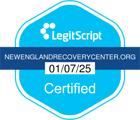Everyone has experienced intrusive thoughts at one point or another. These unwelcome, distressing thoughts can be unsettling and disruptive. While avoiding or suppressing them may seem intuitive, such efforts often result in these thoughts resurfacing with greater intensity. If intrusive thoughts become harder to manage, they can become overwhelming and debilitating.
Thankfully, understanding and identifying them is the first step in developing effective strategies for managing them.
What Are Intrusive Thoughts?
Intrusive thoughts come involuntarily. They form as unwelcome, spiraling thought patterns that can be disturbing and don’t reflect the person’s typical thinking. These thoughts can include:
- Fixations on death
- Illness concerns
- Self-harm
For individuals in addiction recovery, intrusive thoughts may also include cravings, negative self-talk, or feelings of guilt and shame tied to past actions.
What Causes Intrusive Thoughts?
Several factors can contribute to intrusive thoughts, including:
- Mental health disorders: Anxiety, post-traumatic stress disorder (PTSD), and obsessive-compulsive disorder (OCD) have a direct parallel to intrusive thoughts.
- Addiction recovery: Cravings, self-doubt, and withdrawal symptoms can manifest as intrusive thoughts during recovery.
- Stress and trauma: High levels of anxiety or unresolved trauma can amplify these thoughts.
- Habitual thought patterns: Certain thoughts may become ingrained over time, making them harder to dismiss.
Intrusive thoughts are a natural part of the human experience. While they can feel overwhelming, they do not define who you are or your character.
Techniques for Managing Intrusive Thoughts
Although it may not always be possible to eliminate intrusive thoughts completely, there are effective strategies to help manage them:
Diversion
Instead of fighting intrusive thoughts, allow them to occur while simultaneously redirecting your focus. Engage in enjoyable activities such as reading, listening to music, or exercising. These distractions can help occupy your mind and lessen the intensity of the thoughts.
Identify Triggers
Tracking your triggers can lead to managing them. Use a journal to detail specific moments, environments, people, or situations that stir these thoughts.
Establish a Healthy Routine
Creating structure provides stability. Daily routines like mindful meditation and exercise can reduce intrusive thoughts.
Practice Mindfulness and Meditation
Using tools to ground oneself in the moment and stay present, such as mindful meditation, allows one to observe one’s thoughts from a distance. Over time, mindfulness can strengthen your ability to let these thoughts pass without undue distress.
Journaling
Writing down your intrusive thoughts can help externalize them, making them feel less overwhelming. Journaling also provides an opportunity to reflect, identify triggers, and work through your emotions in a healthy, constructive way.
Talk About It
Communicating with a therapist or someone from a trusted support group is beneficial for your wellbeing. Verbalizing your thoughts helps you process them and gain perspective. Group therapy and support groups are encouraging spaces created to feel safe and supported.
Take a Walk
Removing yourself from the environment where intrusive thoughts occur can provide immediate relief. Walking outdoors, especially in nature, can help refocus your mind on your surroundings and provide a grounding experience.
Build a Strong Support Network
Surround yourself with supportive people who understand your journey. Whether it’s friends, family, or a recovery group, having a strong support system can make it easier to navigate moments of distress.
Effective Management for You
While isolating, remember that you’re not alone. Acknowledging and addressing intrusive thoughts allows you to reduce their impact on your daily life and continue to move forward. Using a personalized strategy that suits you best can help you overcome them effectively.
If you or a loved one are struggling with addiction or co-occurring disorders, call the New England Recovery Center today at 1-877-MyRehab.











